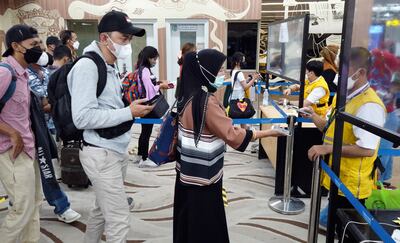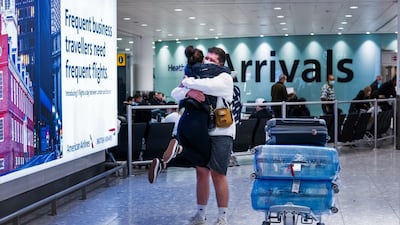Ahead of winter holidays and festive travel, the International Air Transport Association (Iata) is calling on governments to rethink travel bans introduced after the discovery of the Omicron variant.
Several countries have imposed bans on travellers coming from countries where the new variant exists.
Such sweeping restrictions go against the advice of the World Health Organisation, said Iata. The association is calling for countries to rethink what it says are Omicron-driven “knee-jerk restrictions".

“Blanket travel bans will not prevent the international spread, and they place a heavy burden on lives and livelihoods,” said WHO last month.
“After nearly two years with Covid-19 we know a lot about the virus and the inability of travel restrictions to control its spread. But the discovery of the Omicron variant induced instant amnesia on governments which implemented knee-jerk restrictions in complete contravention of advice from the WHO – the global expert,” said Willie Walsh, director general of Iata.
Many countries have ushered in new travel restrictions after the Omicron variant was discovered, including outright bans for travellers from some countries, more rules for pre-flight testing and increased on-arrival isolation.
The UAE, the UK, the US, Canada, Australia and Saudi Arabia are among several destinations that have introduced new rules.
“It is unacceptable that rushed decisions have created fear and uncertainty among travellers just as many are about to embark on year-end visits to family or hard-earned vacations,” said Mr Walsh.
Review periods for new travel restrictions

The association is also calling for governments to commit to a review period whenever they introduce new travel-related Covid-19 restrictions.
“Once a measure is put in place, it is very challenging to get governments to consider reviewing it, let alone removing it, even when there is plenty of evidence pointing in that direction,” it said.
“If there is an over-reaction – as we believe is the case with Omicron – we must have a way to limit the damage and get back on the right track.”
The UK's new testing rules for travellers comes into effect on Thursday, with all arriving passengers now needing to take pre-departure PCR tests a maximum of 48 hours before their flights, regardless of their vaccination status. Any travellers who test positive will be prevented from flying.


